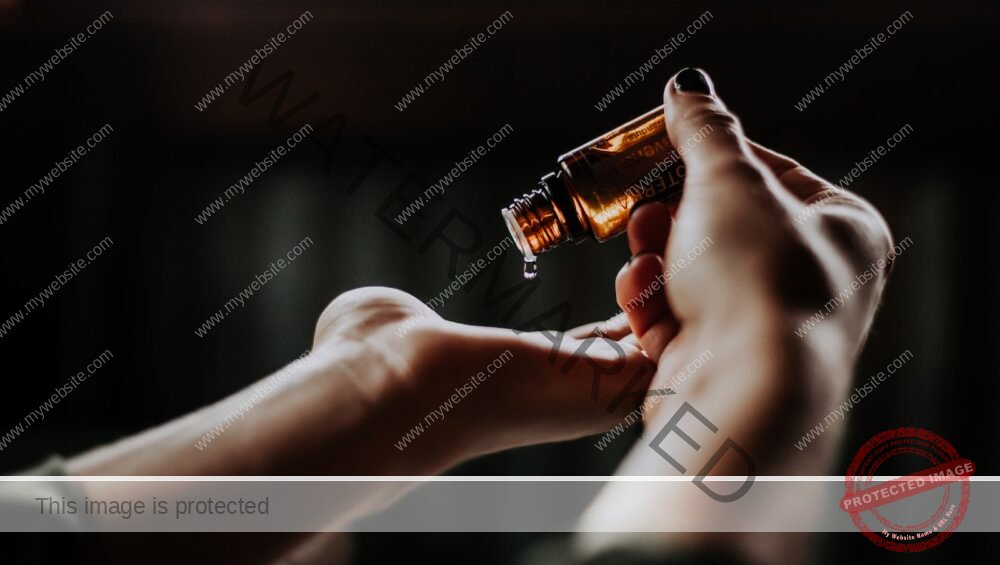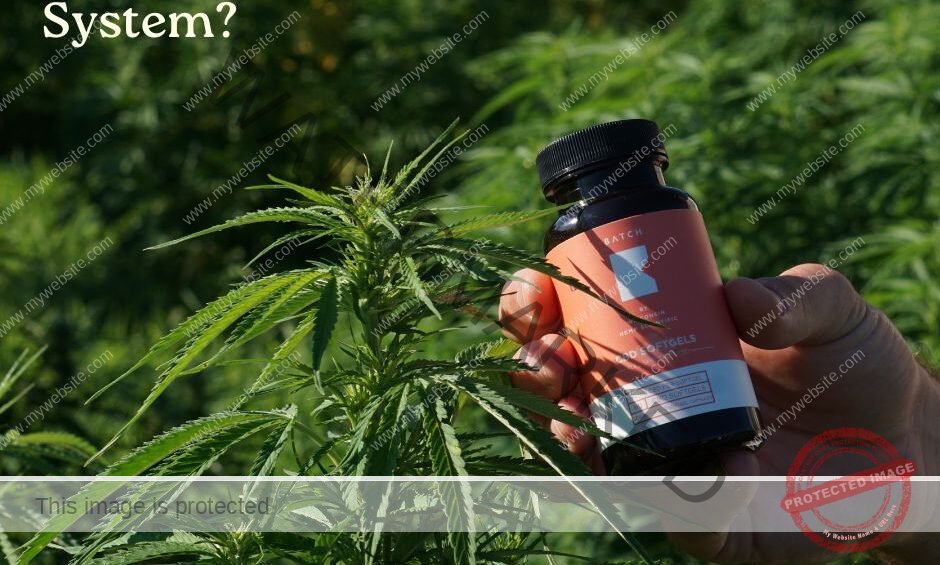The question “Are Stoner Stix real or fake?” pops up a lot in cannabis culture, especially among those curious about new products hitting the market. Stoner Stix, marketed as cannabis-infused sticks or edibles, have sparked debates online, with some calling them a legit game-changer and others dismissing them as a gimmick.
In this post, we’ll dig into what Stoner Stix are, their origins, how they’re made, and whether they hold up as a real cannabis product or just another hyped-up fad.
We’ll also explore the science behind cannabis edibles, the legal landscape, and what users are saying. Our goal is to give you clear, factual info so you can decide for yourself. If you’re looking for cannabis-related products or want to explore more, check out our selection at Packman Ships.
What Are Stoner Stix?
Stoner Stix are marketed as a type of cannabis edible, typically in the form of a stick-shaped treat infused with THC, CBD, or a mix of both. They’re often described as a convenient, portable way to consume cannabis, similar to a candy bar or a slim snack stick. Some brands claim they offer precise dosing, unique flavors, or even strain-specific effects. But here’s where things get murky: the term “Stoner Stix” isn’t tied to one specific brand or product. It’s more of a catch-all phrase that’s been used across various manufacturers, dispensaries, and even homemade recipes.
The lack of a single, clear definition makes it hard to pin down exactly what you’re getting when you buy something labeled as Stoner Stix. Are they a specific product from a reputable company, or just a trendy name slapped on generic edibles? This ambiguity fuels the “real or fake” debate. To get answers, we need to look at the product’s origins and how it’s made.
The Origins of Stoner Stix
No single company owns the term “Stoner Stix,” which is part of the problem. A quick search online shows various products under this name, from THC-infused lollipops to savory snack sticks. Some are sold by licensed dispensaries, while others appear on less reputable websites or social media marketplaces. The earliest mentions of Stoner Stix seem to come from small-scale cannabis brands in states like California and Colorado, where legal cannabis markets have been thriving since the early 2010s.
For example, a few dispensaries in Los Angeles have marketed “Stoner Stix” as pre-rolled joints or edible sticks since around 2015. Meanwhile, online forums like Reddit and cannabis blogs have referenced homemade versions, where users infuse their own snacks with cannabis oil. This DIY culture adds to the confusion—anyone with a kitchen and some cannabis extract can technically make “Stoner Stix,” but that doesn’t mean they’re the same as a commercially produced product.
How Are Cannabis Edibles Like Stoner Stix Made?
To figure out if Stoner Stix are legit, it helps to understand how cannabis edibles are made. The process starts with extracting cannabinoids like THC or CBD from the cannabis plant. This is usually done through methods like CO2 extraction or solvent-based extraction, which produce a concentrated oil. That oil is then infused into a food product—think gummies, chocolates, or, in this case, stick-shaped treats.
Here’s a simplified breakdown of the process:
| Step | Description |
|---|---|
| Extraction | Cannabinoids are extracted from cannabis using CO2, ethanol, or butane. |
| Infusion | The extracted oil is mixed into a base like butter, oil, or syrup. |
| Mixing | The infused base is combined with other ingredients (e.g., sugar, flour) to make the edible. |
| Shaping | The mixture is molded into sticks or other shapes. |
| Testing | Reputable manufacturers test for potency, purity, and contaminants. |
The quality of the final product depends on the ingredients, the extraction method, and whether the manufacturer follows safety standards. Legit companies, like those selling through licensed dispensaries, test their products in labs to ensure accurate THC/CBD content and no harmful contaminants like pesticides or mold. Shady producers, however, might skip testing, use low-quality ingredients, or mislabel their products, which is where the “fake” concerns come in.
If you’re curious about high-quality cannabis products, Packman Ships offers a range of tested, reliable options from trusted brands.
Are Stoner Stix Real (The “Fake” Concern): What’s the Deal?
When people ask if Stoner Stix are fake, they’re usually worried about one of three things: the product doesn’t contain cannabis, the potency is off, or it’s outright unsafe. Let’s break these down.
1. No Cannabis at All
Some sketchy sellers market “cannabis-infused” products that contain no THC or CBD. This is more common in unregulated markets or online shops that operate in legal gray areas. For example, a 2021 report from the Better Business Bureau warned about online scams selling fake CBD products, including edibles, that contained no cannabinoids [BBB.org]. These scams often use buzzwords like “Stoner Stix” to lure buyers.
2. Inaccurate Potency
Even if a product contains cannabis, the dosing might be inconsistent. A 2019 study in the Journal of the American Medical Association found that 60% of cannabis edibles had inaccurate THC labeling, with some containing far less or more than advertised [JAMA Network]. This is a big issue with unregulated or homemade Stoner Stix, where you might get a stick that’s either too weak to feel or so strong it sends you to the moon.
3. Safety Risks
Unregulated products can also be contaminated. The FDA has flagged issues with some cannabis edibles containing harmful bacteria or residual solvents from poor extraction processes [FDA.gov]. If a product isn’t lab-tested, you’re rolling the dice on what’s in it.
These risks are why buying from licensed dispensaries or trusted retailers like PackmanShips is crucial. They prioritize lab-tested products to ensure safety and consistency.
Are Stoner Stix Real Or Fake (Legit)? How to Tell
So, how do you know if the Stoner Stix you’re eyeing are the real deal (Are stoner stix real)? Here are some practical tips to separate the good from the sketchy:
- Check the Source: Buy from licensed dispensaries or reputable online retailers. If the seller’s website looks like it was thrown together in five minutes or lacks clear contact info, steer clear.
- Look for Lab Testing: Legit products come with a Certificate of Analysis (COA) from a third-party lab. This shows the THC/CBD content and confirms the product is free of contaminants.
- Read the Label: Check for clear dosing info (e.g., “10mg THC per stick”). Vague labels like “infused with cannabis” are a red flag.
- Research the Brand: Look up reviews on sites like Leafly or Weedmaps. If the brand has no online presence or only sketchy reviews, be cautious.
- Avoid Too-Good-to-Be-True Deals: If someone’s selling “1000mg THC Stoner Stix” for $5, it’s probably fake. High-potency edibles are expensive to produce.
For a safe bet, browse the selection at Packman Ships, where products are vetted for quality and authenticity.

The Science Behind Cannabis Edibles
To understand why Stoner Stix work (or don’t), let’s talk about how cannabis edibles affect the body. When you eat a cannabis-infused product, THC is absorbed through your digestive system and metabolized by the liver. The liver converts THC into a compound called 11-hydroxy-THC, which is more potent and longer-lasting than inhaled THC. This is why edibles can hit harder and last 4-8 hours compared to smoking, which wears off in 1-3 hours.
Here’s a quick comparison of edibles vs. inhalation:
| Method | Onset | Duration | Potency |
|---|---|---|---|
| Edibles (e.g., Stoner Stix) | 30-90 minutes | 4-8 hours | High (due to 11-hydroxy-THC) |
| Inhalation (smoking/vaping) | 5-15 minutes | 1-3 hours | Moderate |
This delayed onset is why dosing is so important. Eating too many Stoner Stix because you “don’t feel anything” after 20 minutes is a rookie mistake that can lead to an overwhelming high. Start low (5-10mg THC) and wait at least 90 minutes before taking more.
What Users Are Saying
User reviews on platforms like Reddit and Leafly give us a glimpse into the Stoner Stix experience. Some users rave about the convenience and taste, especially for products from well-known brands like Kiva or Wyld, which occasionally market stick-shaped edibles. Others complain about inconsistent effects or products that taste like “cardboard dipped in weed oil.” A common thread is that legit Stoner Stix from dispensaries tend to get better feedback than random online purchases.
For example, a Reddit user in r/trees wrote, “Bought some Stoner Stix from a dispensary in Denver, and they were solid—10mg THC, nice flavor, kicked in after an hour.” Meanwhile, another user warned, “Ordered some off a sketchy site, and they did nothing. Total waste of $30.” These mixed experiences highlight the importance of buying from trusted sources.
The Legal Landscape
The legality of Stoner Stix depends on where you are. In the U.S., cannabis edibles are legal for recreational use in states like California, Colorado, and Washington, but only through licensed dispensaries. Medical cannabis is legal in more states, but regulations vary. Federally, cannabis remains a Schedule I drug, so shipping edibles across state lines is illegal, even if both states allow recreational use.
This legal patchwork creates a gray market where shady sellers thrive. Unregulated online shops might ship “Stoner Stix” to your door, but there’s no guarantee they’re legit or safe. Stick to legal dispensaries or trusted retailers like PackmanShips to stay on the right side of the law and avoid scams.
Stoner Stix vs. Other Edibles
How do Stoner Stix stack up against other cannabis edibles? Let’s compare them to popular options like gummies, chocolates, and baked goods:
| Edible Type | Pros | Cons |
|---|---|---|
| Stoner Stix | Portable, discreet, precise dosing | Limited flavor options, inconsistent quality in unregulated markets |
| Gummies | Wide variety of flavors, consistent dosing | Can be less discreet, sticky in warm weather |
| Chocolates | Rich taste, easy to dose | Melts easily, higher calorie count |
| Baked Goods | Homemade appeal, strong effects | Inconsistent dosing, shorter shelf life |
Stoner Stix stand out for their portability and discreet design, making them a good choice for on-the-go use. But their quality varies widely depending on the brand, so they’re not inherently better or worse than other edibles.
DIY Stoner Stix: Real or Risky?
Some cannabis enthusiasts make their own Stoner Stix at home, using recipes found on blogs or YouTube. These typically involve infusing butter or oil with cannabis, then mixing it into a snack stick recipe. While this can be a fun project, it’s not without risks. Homemade edibles often lack precise dosing, and improper extraction can leave behind harmful solvents. If you’re going the DIY route, invest in a lab-tested cannabis oil and follow a reputable recipe from a site like Leafly.
For those who’d rather skip the kitchen experiment, Packman Ships has a range of professionally made edibles that are tested for safety and potency.
The Role of Branding
Part of the “real or fake” debate comes down to branding. Some companies use the term “Stoner Stix” to tap into cannabis culture’s playful vibe, but without a trademark, anyone can slap the name on their product. This is why you’ll see wildly different versions of Stoner Stix online, from gourmet treats to questionable knockoffs. Established brands like Kiva or Wyld build trust through consistent quality and transparency, while fly-by-night sellers rely on flashy packaging and vague claims.
How to Spot a Scam
Scams are a real issue in the cannabis world, especially online. Here are some red flags to watch for when buying Stoner Stix:
- No Lab Results: Legit products include a COA or batch number you can verify.
- Unrealistic Claims: Promises like “1000mg THC for $10” are usually too good to be true.
- Poor Reviews: Check sites like Weedmaps for user feedback. No reviews or all negative ones? Run.
- Shady Websites: If the site has broken links, no customer service, or looks unprofessional, it’s likely a scam.
Stick to trusted retailers like PackmanShips to avoid these pitfalls.
The Future of Stoner Stix
As the cannabis industry grows, products like Stoner Stix are likely to evolve. Legalization is expanding, with more states and countries opening up recreational markets. This could lead to better regulation, more consistent products, and new innovations in edible formats. Some companies are already experimenting with strain-specific Stoner Stix, claiming to offer tailored effects like relaxation or creativity. Whether these live up to the hype depends on continued research and stricter standards.
Why Quality Matters
Whether Stoner Stix are “real” or “fake” ultimately comes down to quality. A well-made, lab-tested product from a reputable source is as real as it gets. A poorly made, untested knockoff? That’s where the “fake” label fits. Quality affects not just your experience but also your safety. The cannabis industry is still young, and regulation is catching up, so doing your homework is key.
For a curated selection of high-quality cannabis products, visit PackmanShips. We prioritize transparency and safety, so you know exactly what you’re getting.
FAQs
Are Stoner Stix Real And safe to consume?
If bought from a licensed dispensary or trusted retailer like PackmanShips, Stoner Stix are generally safe, provided they’re lab-tested for potency and contaminants. Always check for a Certificate of Analysis (COA) and start with a low dose (5-10mg THC).
Can I make my own Stoner Stix?
Yes, but it’s tricky. You’ll need lab-tested cannabis oil and a reliable recipe to ensure safe dosing. Homemade edibles can be inconsistent, so proceed with caution. For easier options, browse Packman Ships.
How do I know if Are Stoner Stix are fake?
Look for red flags like no lab testing, vague labeling, or suspiciously cheap prices. Buy from reputable sources and check reviews on sites like Leafly or Weedmaps.
What’s the difference between Stoner Stix and other edibles?
Stoner Stix are typically stick-shaped and designed for portability. They’re similar to gummies or chocolates but may have unique flavors or dosing. Quality varies by brand, so stick to trusted retailers like Packman Ships.
Are Stoner Stix Real & legal?
It depends on your location. They’re legal in states with recreational or medical cannabis programs, but only through licensed dispensaries. Federal law still prohibits shipping cannabis across state lines, so buy locally or from trusted online retailers.
Wrapping It Up
The question “Are Stoner Stix real or fake?” doesn’t have a simple yes-or-no answer. Legit Stoner Stix from reputable brands are real, safe, and effective when properly tested and labeled. But the market is also full of fakes, products that are mislabeled, under-dosed, or outright scams. By sticking to licensed dispensaries, checking lab results, and doing a bit of research, you can enjoy Stoner Stix with confidence. For a reliable selection of cannabis edibles, head over to PackmanShips and explore our range of trusted products.















